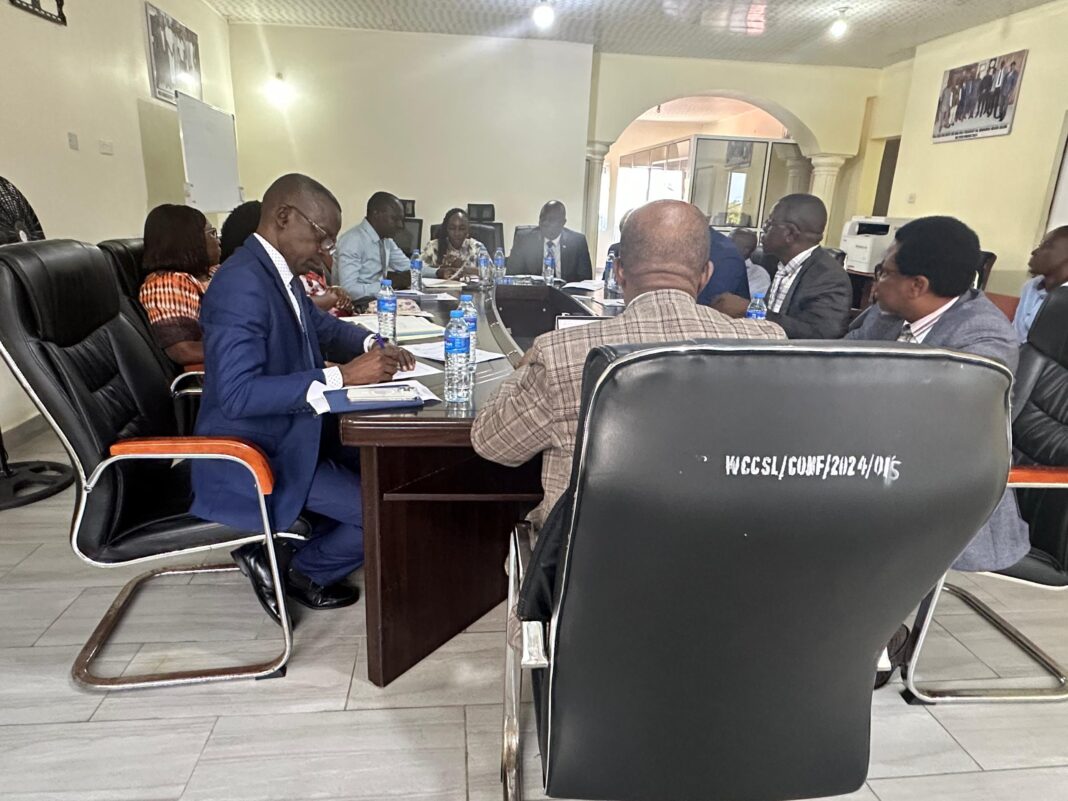Sierra Leone’s Wages and Compensation Commission (WCC) has opened talks with the Human Resource Management Office (HRMO), the Accountant General’s Department (AGD), and the National Social Security and Insurance Trust (NASSIT) to address concerns over individuals receiving multiple pensions, officials said on Tuesday.
The meeting, held at the WCC headquarters in Freetown, brought together senior officials from the three institutions to explore a unified framework for managing pensions under the Wages and Compensation Commission Act.
WCC Chief Executive Officer David W.S. Banya said the Commission was created to promote fairness and equity in public sector compensation, which he said had long been undermined by salary and benefit disparities.
“The Commission was established to create fairness and equity in the reward system to enhance workforce morale and improve national development,” Banya told participants.
He said the WCC is mandated to set standards for determining emoluments, pensions, and gratuities across the public service and to develop mechanisms that replace older, fragmented systems of compensation.
Deputy Chief Executive Officer Prince A.S. Bio said a recent technical review by the Commission found that some public officials were drawing more than one pension from the Consolidated Fund due to overlapping laws predating the WCC Act.
“We recognised that HRMO, AGD, and NASSIT all play critical roles in managing pensions,” Bio said. “The Commission will work with them to advise government on resolving this issue without disadvantaging affected individuals.”
Assistant Accountant General Abu Bakarr Conteh confirmed that multiple pensions were being paid under previous legal provisions, adding that the repeal of older laws by the WCC Act had created a “legislative gap.”
“If one law qualifies an individual for a pension and another also qualifies that same individual for an additional pension, we have no legal grounds to deny it,” Conteh said, urging the Commission to push for new legislative clarity.
Victoria A. Mansaray, Director of Benefits at NASSIT, explained that the Trust administers two categories of benefits — retirement and survivor’s pensions — and operates as a defined-benefit social insurance scheme.
“For example, if a man retires and later loses his spouse who was also a contributor, he may receive both a retirement and a survivor’s pension,” Mansaray said.
She clarified that NASSIT pensions differ from government pensions and are based on joint contributions of 15% of an employee’s salary — 5% from the worker and 10% from the employer — as provided under the NASSIT Act.
The meeting concluded with agreement among the institutions to collaborate on a harmonised pension framework aimed at ensuring transparency, sustainability, and compliance with the WCC Act.



